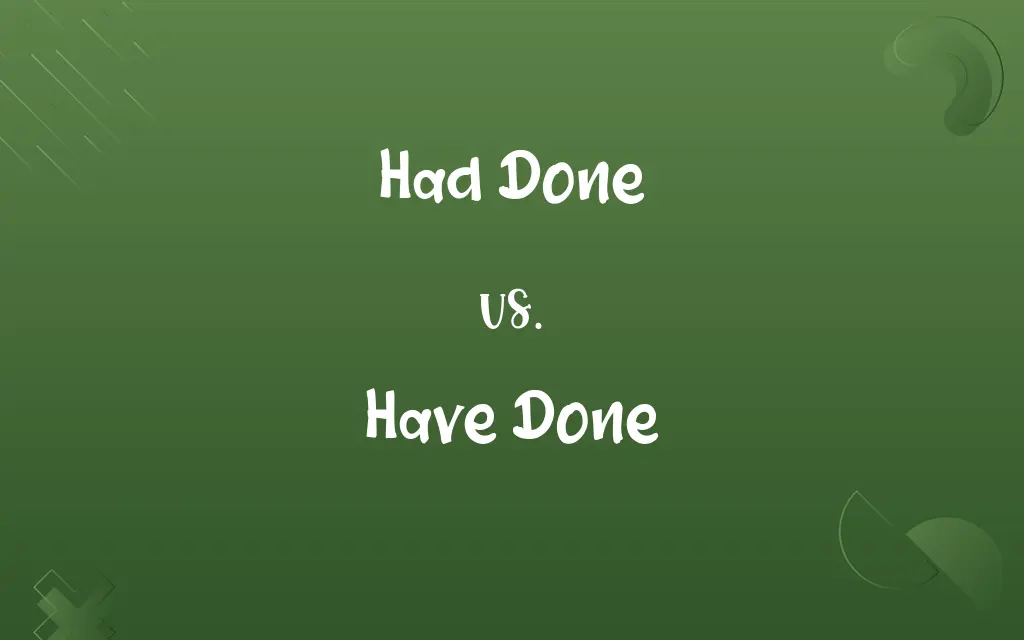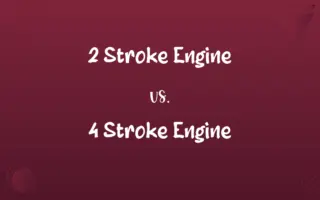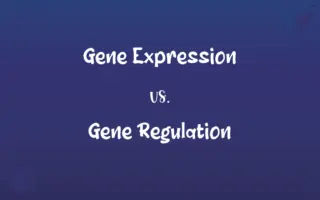Had Done vs. Have Done: Know the Difference

By Shumaila Saeed || Updated on December 25, 2023
"Had done" indicates a past action completed before another past event, while "have done" refers to a past action relevant to the present.

Key Differences
"Had done" is used in the past perfect tense, indicating an action completed before another past event. For example, "She had done her homework before dinner." On the other hand, "have done" is used in the present perfect tense, suggesting a past action with present relevance or impact, such as in "I have done my work for today."
Shumaila Saeed
Dec 20, 2023
In "had done," the focus is on the sequence of events in the past. It is often used in narratives to set the stage for another action: "By the time he arrived, I had done all the preparation." Conversely, "have done" often connects past actions to the current situation: "I have done the dishes, so the kitchen is clean now."
Shumaila Saeed
Dec 20, 2023
"Had done" is typically used when the time of the action is specified: "By 1990, she had done significant research in her field." In contrast, "have done" doesn't specify the exact time of the action, emphasizing its current relevance instead: "I have done my research, and I'm ready to present."
Shumaila Saeed
Dec 20, 2023
"Had done" can also express a missed opportunity or unfulfilled action in the past: "I wish I had done more to help." "Have done" can imply accomplishment or completion in a more recent context: "I have done everything on my checklist for today."
Shumaila Saeed
Dec 20, 2023
In summary, "had done" is about completing an action before another past moment, often with a nostalgic or regretful tone. In contrast, "have done" relates past actions to the present, often with a sense of achievement or current relevance.
Shumaila Saeed
Dec 20, 2023
ADVERTISEMENT
Comparison Chart
Example Usage
"I had done my homework before he called."
"I have done my homework, so I can play now."
Shumaila Saeed
Dec 20, 2023
Narrative Function
Setting the stage for another past action
Connecting past actions to the present
Shumaila Saeed
Dec 20, 2023
Common Contexts
Narratives, missed opportunities, regret
Accomplishments, current relevance, updates
Shumaila Saeed
Dec 20, 2023
ADVERTISEMENT
Had Done and Have Done Definitions
Had Done
Past action completed before another past event.
She had done her shopping before the store closed.
Shumaila Saeed
Dec 11, 2023
Have Done
Used to express life experiences up to the present.
I have done a lot of traveling this year.
Shumaila Saeed
Dec 11, 2023
Had Done
Marker of sequence in past events.
He had done his task when she arrived.
Shumaila Saeed
Dec 11, 2023
Have Done
Suggests readiness or preparation due to past actions.
We have done all the preparations for the party.
Shumaila Saeed
Dec 11, 2023
Had Done
Indicates a past action with no direct present influence.
By that year, she had done all her major works.
Shumaila Saeed
Dec 11, 2023
ADVERTISEMENT
Have Done
Conveys the achievement of tasks or goals.
She has done what was required for the certification.
Shumaila Saeed
Dec 11, 2023
Had Done
Indicative of a completed action in a past narrative.
They had done their research before the meeting started.
Shumaila Saeed
Dec 11, 2023
Have Done
Indicates recent completion of an action.
They have done their part in the project.
Shumaila Saeed
Dec 11, 2023
Had Done
Expression of a missed opportunity in the past.
I wish I had done more to help him.
Shumaila Saeed
Dec 11, 2023
Have Done
Past action with current relevance or results.
I have done my assignment, so I'm free now.
Shumaila Saeed
Dec 11, 2023
Repeatedly Asked Queries
When do we use "had done"?
When talking about an action completed before another past event.
Shumaila Saeed
Dec 20, 2023
Can "had done" express regret?
Yes, it can indicate regret for past actions not taken.
Shumaila Saeed
Dec 20, 2023
Can "had done" refer to recent actions?
No, it refers to actions completed before a specific past time.
Shumaila Saeed
Dec 20, 2023
When is "have done" used?
For past actions with present relevance or impact.
Shumaila Saeed
Dec 20, 2023
Can "had done" be used without specifying time?
Generally, the context implies a specific past time frame.
Shumaila Saeed
Dec 20, 2023
Can "have done" imply recent completion?
Yes, it often suggests recent action completion.
Shumaila Saeed
Dec 20, 2023
Is "have done" appropriate for finished recent actions?
Yes, particularly for actions affecting the present.
Shumaila Saeed
Dec 20, 2023
Is "had done" used for sequence in narratives?
Yes, it sets the stage for another past action.
Shumaila Saeed
Dec 20, 2023
How is "had done" different in expressing regret?
It often conveys a sense of missed opportunity in the past.
Shumaila Saeed
Dec 20, 2023
Are "had done" and "have done" interchangeable?
No, they are used in different contexts and tenses.
Shumaila Saeed
Dec 20, 2023
Can "have done" indicate life achievements?
Yes, especially in the context of personal or professional milestones.
Shumaila Saeed
Dec 20, 2023
Is "had done" suitable for current updates?
No, it's more suitable for past narratives and sequences.
Shumaila Saeed
Dec 20, 2023
Is "have done" used for life experiences?
Yes, especially for experiences up to the present.
Shumaila Saeed
Dec 20, 2023
Can "have done" suggest ongoing actions?
No, it implies actions that have been completed.
Shumaila Saeed
Dec 20, 2023
Does "have done" focus on the exact time of action?
No, it emphasizes current relevance rather than specific timing.
Shumaila Saeed
Dec 20, 2023
How does "had done" relate to storytelling?
It's used for detailing past actions in a narrative.
Shumaila Saeed
Dec 20, 2023
Can "have done" be used for future implications?
Indirectly, as it can imply readiness for future events.
Shumaila Saeed
Dec 20, 2023
Does "had done" always indicate completion?
Yes, it refers to completed actions before another past event.
Shumaila Saeed
Dec 20, 2023
Share this page
Link for your blog / website
HTML
Link to share via messenger
About Author
Written by
Shumaila SaeedShumaila Saeed, an expert content creator with 6 years of experience, specializes in distilling complex topics into easily digestible comparisons, shining a light on the nuances that both inform and educate readers with clarity and accuracy.








































































